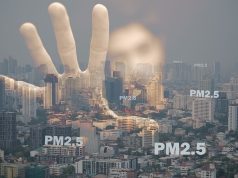Five years after landfall, 5 percent increased risk seen in elderly residents
By Lori Solomon HealthDay Reporter
THURSDAY, Sept. 11, 2025 (HealthDay News) — Older adults living in flood-hit areas after Hurricane Sandy faced a 5 percent higher risk for heart disease for up to five years after landfall, according to a study published online Sept. 3 in JAMA Network Open.
Arnab K. Ghosh, M.D., from Weill Cornell Medicine in New York City, and colleagues examined the long-term association between hurricane-related flooding and cardiovascular disease (CVD) risk. The analysis included 121,395 continuously enrolled Medicare fee-for-service beneficiaries residing in New Jersey, New York City, and Connecticut from 2010 through 2017 (63.9 percent living in zip code tabulation areas [ZCTAs] that flooded).
The researchers found that in nonflooded versus flooded ZCTAs, ZCTA-level median income ($81,168 versus $69,650) and median National Area Deprivation Index rank (17.1 versus 21.0) differed, although prevalence of CVD and CVD subtypes were similar at baseline. Five years after hurricane landfall, flooding was associated with an increase in adjusted CVD risk (relative risk, 1.05; 95 percent Bayesian credible interval [bCrIs], 1.01 to 1.08) and heart failure rates overall (relative risk, 1.03; 95 percent bCrIs, 1.00 to 1.08). There were no significant differences for rates of myocardial infarction or stroke in adjusted analyses.
“With this work, we lay the groundwork to show that hurricanes can have long-term impacts on health,” Ghosh said in a statement.
Copyright © 2025 HealthDay. All rights reserved.








